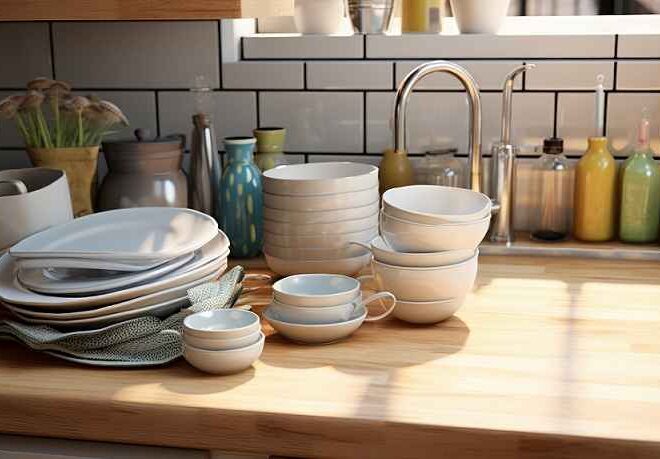
What is a Kitchen in Hair? Understanding the Basics of Hair Health
Welcome to the ultimate guide to understanding your hair’s health! Just like a well-stocked kitchen is essential for crafting delicious meals, having a solid foundation of knowledge about hair care can transform your locks from drab to fab. But what exactly does “kitchen” mean in the world of hair? Is it just another buzzword, or does it hold the key to luscious, vibrant strands? In this blog post, “Kitchen in Hair” we’ll explore the basics of hair health and uncover how you can nourish your mane using simple ingredients and techniques. Get ready to dive into a world where science meets self-care, and discover how treating your hair right can lead to that enviable shine and bounce you’ve always dreamed of. Let’s cook up some fabulous tresses together!
Introduction to the concept of Kitchen in Hair
Have you ever heard someone refer to the “kitchen in hair”? If you’re scratching your head, don’t worry—you’re not alone. This intriguing term encapsulates a world of knowledge about hair health that many overlook. Just like a well-stocked kitchen is essential for whipping up delicious meals, understanding your hair’s needs is crucial for maintaining its vitality and beauty.
Your hair isn’t just strands; it’s an intricate structure influenced by various factors, including diet, environment, and care routines. So what exactly does this “kitchen” represent? Let’s dive into the fascinating relationship between our locks and their health! Whether you’re facing common issues or simply want to boost your mane game, unraveling the mysteries behind this concept could be the key to achieving luscious locks.
Understanding the structure of hair
Hair is a fascinating structure made up of three main layers. The outermost layer, called the cuticle, consists of overlapping cells that protect the inner layers. Think of it as a shield for your hair.
Beneath the cuticle lies the cortex. This middle layer contains proteins and pigments that give hair its strength and color. It’s where most of your hair’s characteristics reside.
At the center is the medulla, which may not be present in all types of hair. This innermost layer plays a lesser role but contributes to texture in those with thick strands.
Understanding this structure helps us appreciate how different factors can affect our locks’ health. Each part has specific needs when it comes to nourishment and care, highlighting why personalized routines are essential for maintaining vibrant hair.
The role of the scalp in hair health
The scalp plays a crucial role in the overall health of your hair. It’s more than just skin; it serves as the foundation for each strand that grows from it.
A healthy scalp promotes optimal hair growth by providing essential nutrients and maintaining balance. The scalp’s environment must be well-hydrated and clean to support strong follicles.
When the scalp is dry or irritated, it can lead to issues like dandruff or excessive oiliness. These conditions directly affect hair vitality and appearance.
Regular exfoliation helps remove dead skin cells, allowing for better absorption of oils and treatments. This practice keeps pores clear, promoting healthier follicles.
Choosing gentle shampoos is key too. Harsh chemicals can strip away natural oils, weakening both scalp and hair health over time.
Common hair problems and how they relate to the kitchen in hair
Hair problems often stem from an imbalance in our “kitchen in hair.” This term refers to the internal factors that nourish and maintain healthy hair. When these elements are off, issues arise.
For instance, dryness can signal a lack of hydration or essential nutrients. If your kitchen lacks moisture-rich foods like avocados and nuts, your strands may become brittle.
On the other hand, excessive oiliness might indicate overactive sebaceous glands. A diet heavy in processed sugars could contribute to this condition by inflaming the scalp.
Dullness is another common concern. It suggests insufficient vitamins such as B12 or iron. Incorporating leafy greens and lean proteins into your meals can help restore that vibrant shine.
Understanding these connections can empower you to address underlying causes rather than just symptoms when caring for your hair.
Tips for maintaining a healthy kitchen in hair
Maintaining a healthy kitchen in hair starts with hydration. Drink plenty of water daily to keep your strands moist and nourished from within.
Opt for gentle shampoos free of harsh sulfates. They cleanse without stripping essential oils, preserving your hair’s natural balance.
Regular trims are key too. Snipping away split ends prevents further damage and promotes growth.
Embrace a balanced diet rich in vitamins and minerals like biotin, zinc, and omega-3 fatty acids. Foods such as nuts, leafy greens, and fish work wonders for hair vitality.
Don’t forget about heat protection! Always use styling tools on low settings or apply a protective spray before heat exposure to minimize stress on your locks.
Lastly, be mindful when brushing. Use wide-toothed combs or soft brushes to detangle gently—this reduces breakage significantly.
Natural remedies for improving kitchen in hair health
Natural remedies are a fantastic way to enhance your kitchen in hair health. One popular option is coconut oil. Known for its deep conditioning properties, it penetrates the hair shaft and adds moisture.
Aloe vera is another powerhouse. Its soothing qualities help reduce scalp irritation while promoting healthy growth. Applying fresh aloe gel directly to the scalp can work wonders.
Honey acts as a natural humectant, drawing moisture into your hair. Mixing honey with olive oil makes an excellent nourishing treatment that you can leave on for about 30 minutes before rinsing.
Green tea isn’t just a refreshing drink; it’s rich in antioxidants that promote strong follicles. Rinsing your hair with cooled green tea can invigorate both your strands and scalp.
Lastly, consider using essential oils like rosemary or lavender mixed with carrier oils. They not only smell divine but also stimulate blood circulation, encouraging healthier growth over time.
Products and ingredients to look for (and avoid) when caring for your kitchen in hair
When caring for your kitchen in hair, selecting the right products is crucial. Look for ingredients like biotin and keratin, which strengthen hair and promote growth. Natural oils like argan or jojoba can hydrate without weighing down your strands.
Avoid harsh sulfates and parabens that strip away essential oils. These chemicals can lead to dryness and damage over time. Alcohol-heavy formulas may also dry out your scalp, causing flakiness.
Consider products with antioxidants such as vitamin E or green tea extract for added protection against environmental stressors.
Always read labels carefully; sometimes what’s marketed as “natural” can still contain harmful additives. Prioritize brands that focus on clean ingredients to nurture your kitchen in hair while maintaining its vitality truly.
Conclusion: Embracing and nurturing your unique kitchen in hair.
Embracing and nurturing your unique kitchen in hair is all about understanding what makes it special. Each person’s hair tells a story, reflecting their lifestyle, genetics, and care routines. By taking the time to learn about its structure and the vital role of your scalp, you can tailor your approach to suit your specific needs.
Addressing common issues like dryness or brittleness ensures that you maintain a healthy environment for growth. Incorporating natural remedies into your routine can offer gentle yet effective support. Choosing the right products—while being mindful of harmful ingredients—will further enhance your hair’s vitality.
Remember that achieving optimal hair health is not just a one-time effort; it’s an ongoing journey. Celebrate what makes your kitchen in hair unique, nurture it with love and appropriate care practices, and watch as it flourishes into its fullest potential. Your kitchen in hair deserves attention and respect; after all, it reflects who you are!


